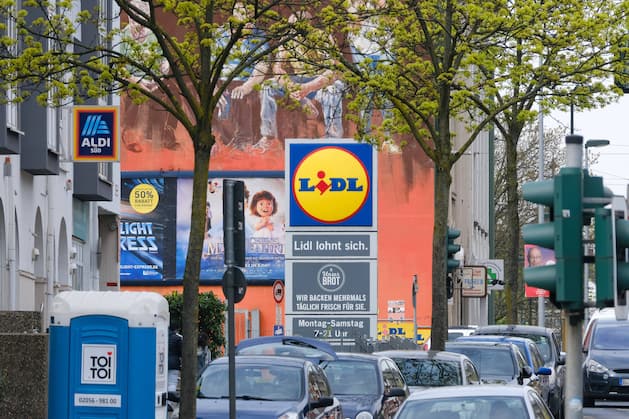Children’s products from breakfast cereals to drinks during breaks are a billion dollar business. But their often high sugar content has been criticized by health experts – as has advertising for it, which is often aimed at children. A discounter is now drawing consequences.
From children’s pudding to yoghurt with chocolate beans, from breakfast cocoa to sugary drinks for the school break: food for children is a billion dollar business. However, the composition of the products is often a thorn in the side of health experts.
They complain about too much sugar, too much fat and too much salt in many of the often elaborately advertised products and have been calling for a rethink in retail and industry for years.
The discounter Lidl has now taken on a pioneering role. The low-cost provider announced on Tuesday that from the coming financial year, which begins on March 1 at Lidl, it will no longer advertise unhealthy foods aimed at children – such as sugary yoghurts or drinks, but also chocolate.
There should only be exceptions for promotional items for Christmas, Easter or Halloween – for example for chocolate Santa Clauses or Easter bunnies.
“Lidl is the first German food retailer to implement a corresponding recommendation from the World Health Organization (WHO),” said the discounter. But the company goes even further.
By the end of 2025, Lidl also only wants to sell food that meets the WHO criteria for healthy food in packaging that is attractive to children. The packaging would be changed step by step.
“Since malnutrition in childhood increases the risk of nutrition-related diseases in adulthood, advertising healthy food and not advertising unhealthy food up to the age of 14 is central to health,” says a company presentation.
The science alliance Deutsche Allianz Noncommunicable Diseases praised that Lidl goes “significantly beyond the voluntary commitments of other manufacturers and retailers”.
Consumer organization Foodwatch urged competitors to follow Lidl’s example. “In view of rampant malnutrition among young people, with sometimes fatal consequences, this is an important step, but one that is long overdue,” said Luise Molling from Foodwatch. However, no statement was initially available from Aldi, Rewe and Edeka.
The fact is: According to scientific studies, around 15 percent of children and young people in Germany are currently overweight and six percent are even severely overweight (adiposity). This can lead to diseases such as type 2 diabetes, joint problems, high blood pressure and heart disease later in life.
“Numerous products with a children’s look are characterized above all by the fact that they contain plenty of sugar, fat and additives – and are often significantly more expensive,” criticized the Federal Association of Consumer Centers recently.
The problem is by no means limited to the retail chains’ own brands. A 2021 study by Foodwatch of 283 food products from leading brand manufacturers found that 85.5 percent of products advertised specifically for children contained too much sugar, fat and/or salt by WHO standards.
The result was hardly better than in 2015, despite the industry’s voluntary commitment to reduce sugar. And there has been little progress since 2021, according to a Foodwatch spokesman on Tuesday.
The brand manufacturers naturally see things differently. At the request of the German Press Agency, the consumer goods giant Unilever (Langnese, Knorr) emphasized that it had already stopped marketing and advertising food and drinks to children under the age of 16 for both traditional media and social media in April last year.
The food company Mondelez, known for the brands Milka and Oreo, announced that in all its advertising measures in Germany it adheres to the voluntary commitment “not to place any advertising that aims to reach children under the age of 14”.
Competitor Danone also emphasized: “We support regulations in this direction.” Products such as the fruit dwarfs “less sweet” already meet the nutritional criteria of the WHO, said a company spokeswoman.
However, the industry’s commitment to date has obviously not convinced all critics by a long shot. The federal government has now put the issue on the agenda.
The coalition agreement of the traffic light coalition states in the chapter on nutrition: “Advertising for children with high sugar, fat and salt content may no longer exist in programs and formats for under 14-year-olds in the future.”
And the consumer protection ministers of the federal states have already called for a junk food advertising ban for children in 2022. For large parts of the population, stricter rules for unhealthy children’s products would probably break open doors.
In a survey conducted by the Federal Association of Consumer Advice Centers, 83 percent of consumers approved of upper limits for sugar, fat and salt in foods that are designed and presented for children.















